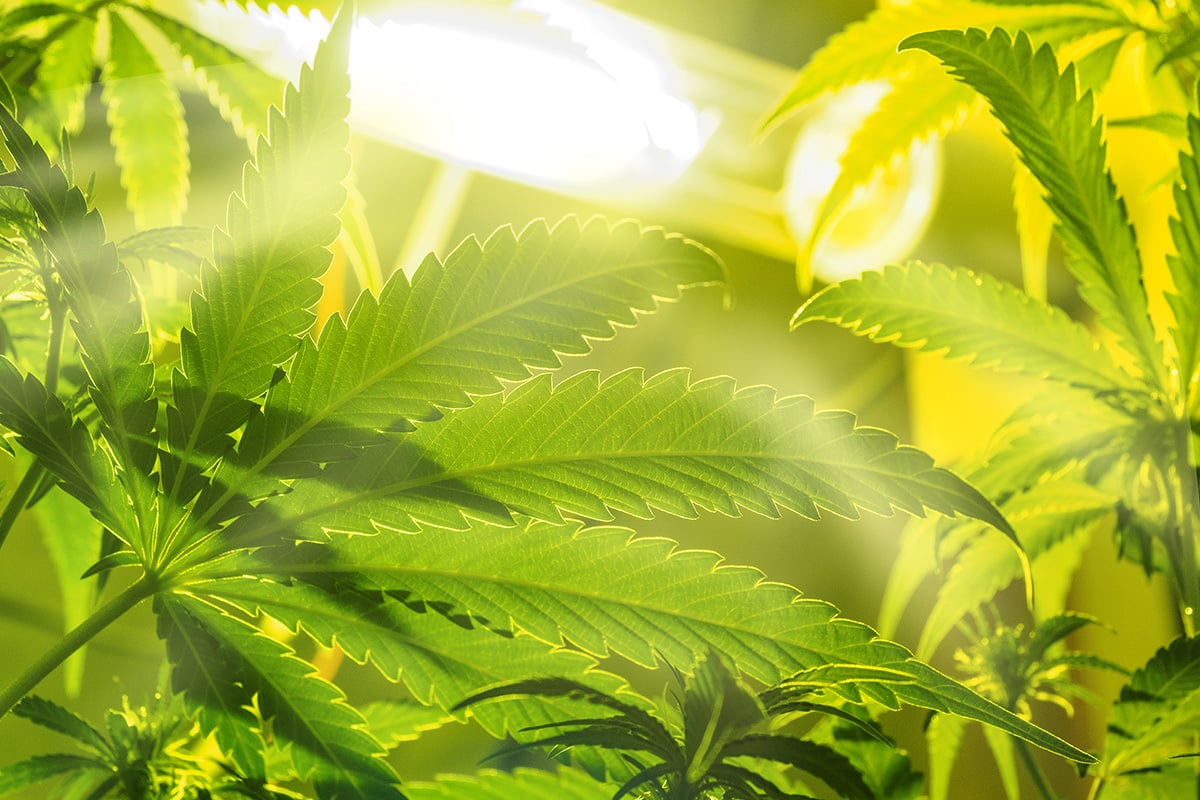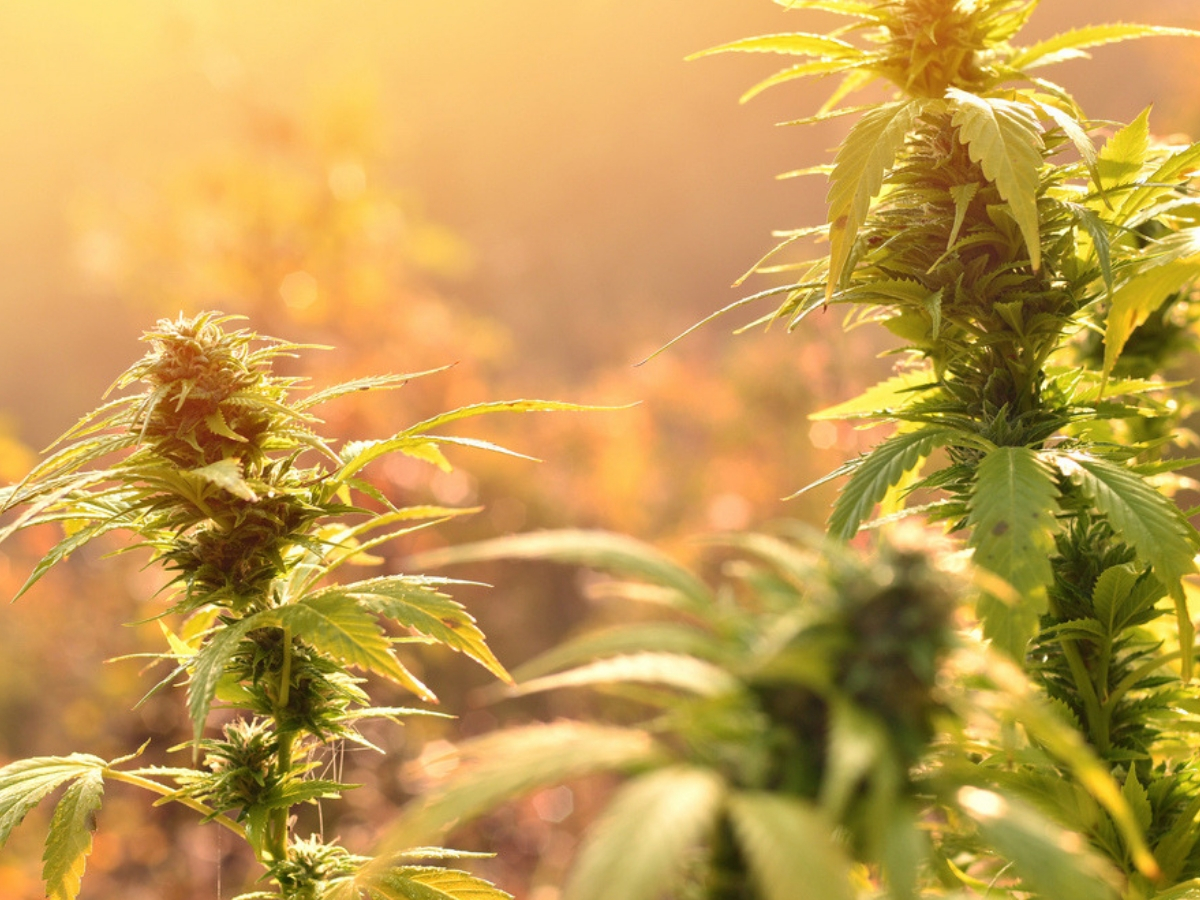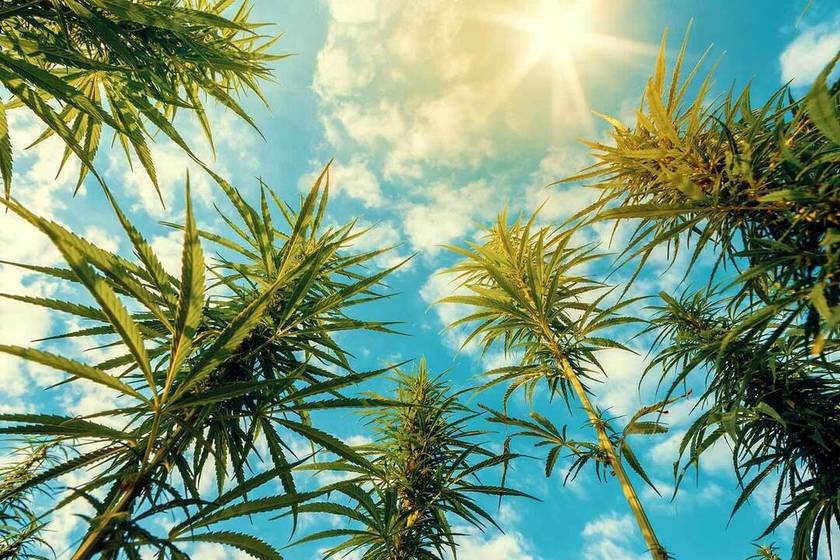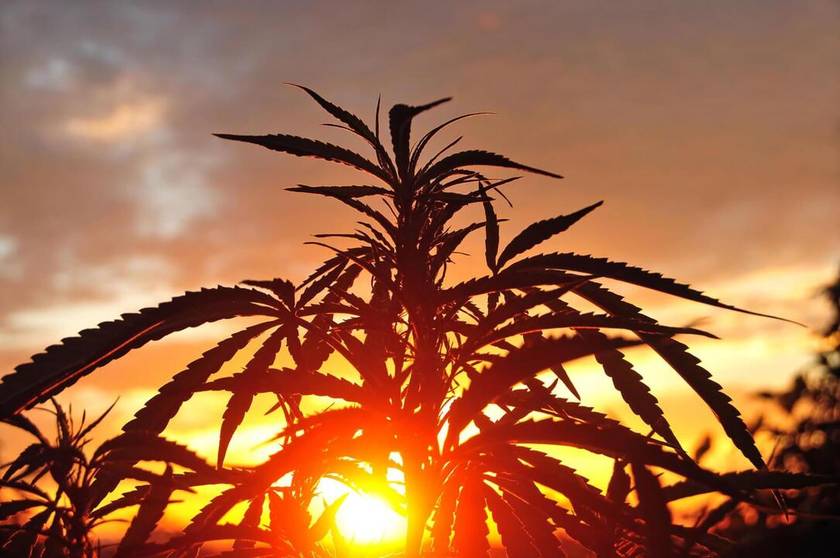Cannabis plants are highly sensitive to environmental factors, and direct sunlight can be especially harmful to their growth during the flowering phase and harvest time. While natural sunlight is important for the development of cannabis plants, excessive exposure to direct sunlight can lead to environmental stress and heat damage, ultimately resulting in stunted growth and reduced harvests. This is why it's important to protect cannabis plants from the sun.
How Heat Stress Affects Cannabis Plants
Cannabis plants require just the right amount of heat to thrive. However, when temperatures become too hot, they can cause significant damage to the plants, leading to drooping or wilting leaves and stunted growth. This condition is known as heat stress, and it can dramatically impact the growth and yield of cannabis plants. In this article, we will outline how heat stress affects cannabis plants and offer preventative measures that growers can take to avoid damage.
Heat stress occurs when the temperature of the environment surrounding the cannabis plants exceeds their optimum threshold. For cannabis plants, the ideal temperature range is between 20-30°C (68-86°F). Any temperature above this range can lead to heat stress and can cause plant damage. The effects of heat stress may not be immediately evident, and it could take several days before any noticeable signs of damage appear.
Signs of heat stress include drooping or wilting leaves, scorching or curling of leaves, and stunted growth. Plants may also experience a reduction in quality and yield, leading to a lesser value of the crop. Furthermore, during the flowering stage, excessive heat can cause a reduction in trichome production and, as a result, reduce the potency of the cannabis plant.
Read More: How To Use Molasses To Grow Cannabis
What Causes Heat Stress?
In hot climates, prolonged exposure to direct sunlight can cause heat stress, leading to severe damage or death of the plants. Heat stress occurs when a plant's internal temperature rises beyond its tolerance levels, impairing its metabolic processes.
Factors that increase the chances of heat stress in cannabis plants include low humidity, excessive light, and poor ventilation. During hot weather conditions, the humidity level decreases, causing the plant to lose more water through transpiration.
This can lead to dehydration and wilting. Excessive light or sunlight can also cause heat stress, especially during the flowering period. Additionally, poor air circulation or stagnant air increases the likelihood of heat pockets forming around the plants, further exacerbating the heat stress symptoms.
Read More: Hydroponic vs. Soil Cannabis Cultivation
Protecting Your Outdoor Cannabis Garden from the Sun
Protecting your outdoor cannabis garden from the sun is crucial to ensure a healthy and successful crop. Direct sunlight, extreme temperatures, and environmental stress can all have negative effects on your cannabis plants, hindering their growth and reducing your final yield. Whether you are a seasoned outdoor grower or just starting, it is important to take steps to protect your plants from the sun and to ensure that they can thrive in the outdoor environment. Here are some tips and tricks for protecting your outdoor cannabis garden from the sun.
Adequate Shade Structures and Smart Plant Placement
One of the most important things to consider when growing cannabis outdoors is how to protect it from the sun's harmful rays. Direct sunlight can cause environmental stress and heat stress, which can negatively impact the growth and development of your cannabis plants. To address this issue, cannabis growers need to consider adequate shade structures and smart plant placement.
Shade structures can provide relief from direct sunlight and protect outdoor cannabis plants from the hot and vigorous rays of the sun. Several different types of shade structures can be used, including umbrellas, tarps, and shade cloth.
Each type of structure has its benefits and drawbacks. Umbrellas, for example, can be moved around easily but are not ideal for large outdoor crops. Tarps can offer excellent protection but might not be ideal for extremely hot temperatures due to their lack of ventilation. Shade cloth, on the other hand, is a popular option for outdoor cannabis growers due to its ease of use and excellent shade-providing capabilities.
Another important factor to consider when providing shade is the direction of the sun throughout the day. The sun's path changes continuously and can vary depending on the location and time of year. It's important to be aware of these changes and position your plants accordingly.
By planting cannabis in areas with natural shade from trees or buildings, you can further optimize protection against the sun's harmful rays. Additionally, planting taller plants next to shorter ones can create natural shade and provide optimal outdoor growing conditions.
Watering Practices to Manage High Temperatures
When growing cannabis plants outdoors, the effects of heat stress can be a serious concern during hot weather conditions. Proper watering practices can go a long way in helping to prevent heat damage to your plants.
- Timing
Timing is critical when it comes to watering your cannabis plants during high temperatures. We recommend avoiding watering during the hottest hours of the day, as this can cause the water droplets to act as a magnifying glass for the sun's rays, resulting in increased heat damage to the plant tissue. Instead, aim to water early in the morning or after sunset when the temperatures are cooler.
- Quantity
During hot weather conditions, it's important to pay attention to the quantity of water being applied to your plants. Overwatering can be as harmful as underwatering, as it can lead to root rot and other problems. To avoid this, make sure the soil is dry up to your first knuckle before watering your plants. When you do water, apply enough water to saturate the soil, but be careful not to overdo it, as this can lead to waterlogging.
- Quality
The water quality that you use to water your cannabis plants is also important. Make sure that the water is free of contaminants and has a neutral pH level. Using a good quality water source can help prevent nutrient deficiencies and other problems that can affect the health of your plants.
- Fabric Pots
Using fabric pots can be a great way to manage watering during hot weather conditions. These pots provide good drainage and allow oxygen to reach the plant roots, which is essential for healthy growth. Fabric pots are also less prone to overwatering and can help prevent root rot, which is a common problem associated with overwatering.
Read More: The Ultimate Supercropping Cannabis Guide
Mulching Strategies to Decrease Heat Effects in Soil
The effects of extremely bad weather conditions on cannabis plants can be devastating, especially when the plant is in the flowering phase or during harvest time. However, one efficient technique to combat hot climate is through the use of mulching strategies. Mulching can decrease the heat effects in soil and protect the shallow roots of marijuana plants from high temperatures.
Mulching is the process of spreading a layer of organic material like straw or grass clippings over the soil. This acts as a barrier between the sun and soil, preventing moisture from evaporating, and further protecting shallow roots from the harmful effects of direct sunlight and heat. In addition, mulch helps to retain the soil's moisture, keeping it cool and moist.
Using organic material such as mulch also has the added advantage of providing extra nutrients to the soil as it decomposes. Decomposed organic material releases nitrogen, potassium, and phosphorus – necessary nutrients for the successful growth and development of marijuana plants. When cannabis plants receive the right nutrients at the right time, they are more resistant to environmental stresses.
Read More: How To Grow Autoflower Seeds
Trimming Tips to Keep Your Plant Cool During Hot Climates
When it comes to growing marijuana plants in hot climates, managing heat stress can be a challenging task. Fortunately, there are several effective ways to keep your plants cool and healthy, one of which is trimming.
Trimming involves the selective removal of leaves and branches of your outdoor plants. When done correctly, it can help improve airflow and reduce humidity levels around your plants, making the environment less hospitable to mold and other pests. Here are some trimming tips to help keep your plants cool during hot climates:
- Remove Large Leaves: When plants enter the flowering phase, they tend to produce large fan leaves that can block light and airflow to the budding sites. Removing these large leaves can open up the canopy and promote better circulation, which helps to cool the outdoor plants. Not only does removing large leaves allow better airflow, but it also reduces humidity in the surrounding area.
- Provide Shade: Strategically trimming leaves can provide shade for the plant's lower branches, which can mitigate heat stress. By removing leaves that are blocking lower branches from sunlight, you can create a micro-climate that is cooler and more comfortable for your plants.
- Trim Lower Branches: During the vegetative stage, outdoor cannabis plants tend to produce lots of lower branches that might not get enough light to produce quality flowers. Trimming these lower branches can reduce the amount of energy the plant needs to feed itself during the flowering period. This has the effect of reducing the plant's overall metabolic rate, which in turn helps to keep it cool.
- Use Fabric Pots: Fabric pots are becoming increasingly popular among outdoor marijuana growers because they offer better airflow than their plastic counterparts. Unlike hard plastic containers, fabric pots allow more oxygen to pass through, which helps to keep root temperatures down. By keeping roots cooler, the entire plant stays cooler.
- Companion Plants: Companion planting can help cannabis growers cultivate a diverse ecosystem that can help protect their plants from environmental stress. Pairing cannabis plants with heat-resistant plants such as nasturtium, marigold, or mint can help shade the plants and reduce the overall temperature in the surrounding area.
Read More: How To Start Cannabis Seed
Utilizing Breaks in Weather Conditions to Your Advantage
Outdoor cannabis growers understand the importance of providing their plants with natural sunlight for optimal growth during the vegetative and flowering stages. However, during periods of hot weather or intense sunlight, it's crucial to protect your cannabis plants from environmental stress such as heat stress and sunburn. One way to do this is to pay attention to breaks in weather conditions.
When the forecast calls for extreme temperatures or hot weather, it's essential to keep an eye out for breaks like thunderstorms or heavy winds. These temporary weather changes can provide relief for your cannabis plants. Once the weather becomes less extreme, bring your plants outside to receive natural sunlight. During this period, make sure to provide adequate shading and protection from direct sunlight.
To protect your plants, be prepared with shading structures like tarps or shade cloth to block out the sun's intense rays. It's best to have these structures readily available in case the weather suddenly changes. With proper shading, you can regulate the amount of sunlight your plants receive, preventing them from experiencing the effects of heat stress.
Read More: How Long Do Cannabis Seeds Last
Final Thoughts
In summary, protecting cannabis plants from the sun and extreme weather conditions is essential for outdoor growers. Taking precautions such as providing shade structures, mulching, and trimming can help keep plants cool during hot climates and prevent heat stress. It's crucial to take steps to protect cannabis plants from environmental stress, especially during the flowering phase and harvest time.


 Français
Français 


